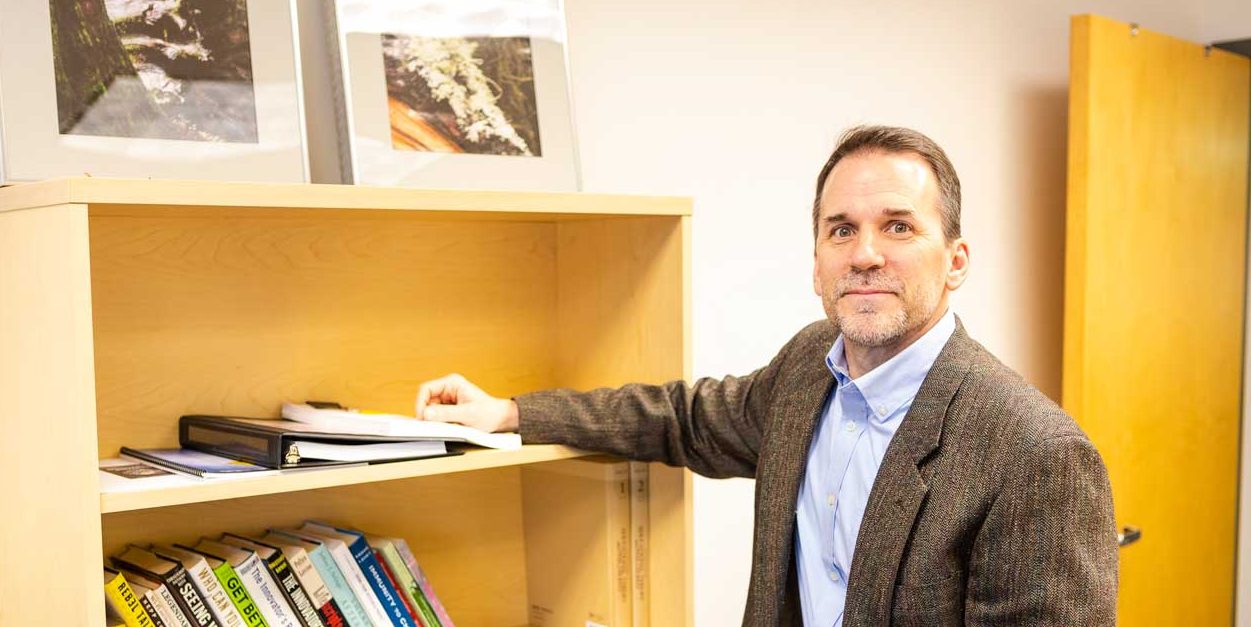Financial Coach
Get Help with Staying on Top of Your Finances
Tim Stickel, UAF’s eCampus Financial Coach and Personal Finance Instructor, can help you manage and plan for the costs of paying for classes.

Estimate Your Cost of Attendance
Money management is a common struggle for college students, no matter what phase of life you’re in. You’ll learn a lot about English, math and science in your college courses but may not learn how to manage your budget or how to finance your education. Here I’ve collected some helpful tips and tools for managing your money throughout your college career.
The exact cost of your education depends on a number of factors — how many lower- and upper-division credits you take, whether your courses have surcharges, what materials you’ll be required to buy — but you can use this tuition calculator to get a good estimate of your costs.
If you’re planning to enroll full-time (12 credits or more), add an additional $56/course for fees. Now, add about $500 for books and supplies. This is an estimate of how much a semester at UAF will cost you. Your actual costs may be higher or lower.
You can check your balance by logging into your UAOnline account.
To learn more about the breakdown of tuition and fees for eCampus students, visit our tuition page.
Need Help with Planning Your Finances?
Read Tim’s tip on this page or reach out!
Tim's Top Tips
Use Credit Cards Responsibly
The choice to open a credit card is personal. If you choose to have a credit card, an important rule is to spend less than you bring in. College is a great time to build your credit but it’s also an easy time to spend more than you should.
Work While Studying
Working during college is becoming more important as tuition costs continue to rise. Studies show that working 15 to 20 hours a week can actually boost your academic performance and keep you focused on moving toward your overall educational goal. Explore on-campus jobs.
Stay Out of Debt
You will be much better off if you limit the debt (student loans, auto loans, credit cards) you take on during your college years. The LIMRA Institute reports that millennials who start their careers with $30,000 in student loans would have over $300,000 less in retirement savings compared to debt-free peers. While you might need some student loans to finish your degree, do all you can to limit that and stay out of debt!
How to Pay for College
There are many options available to help pay for your education including scholarships, grants and your savings. Here are a few ideas:
Work Part-Time
Education research has shown that students who work up to 20 hours a week actually obtain higher GPAs than students who don’t. There are many departments on campus looking for student employees as well as businesses off campus. They will usually work around your class schedule too. Find university jobs.
Apply for Scholarships and Grants
This is free money that will help you pay for college costs. The University of Alaska has hundreds of scholarships available that only require a single application. Find more about Scholarships and Grants and other forms of Financial Aid.
Dual Enrollment
High school students can take college courses that will count for both high school and college credit. Schools in our Advantage program even get package pricing for their students. Learn more about dual enrollment.
Test Out of a Course
You can test out of some of your required courses by taking a College Level Examination Program (CLEP) test. Check with UAF Testing Services for options.
Save Money Before Starting
If you need to, delay college for a semester until you are financially ready to take on its costs. Work full time and save up the money you need. Unsure how much you’ll need? Contact me and I’ll help you prepare.
What Not To Do
A college education is one of the biggest investments you will ever make, right up there with buying a house. Research indicates that it’s a worthwhile investment; over a working career, degree recipients can make upwards of hundreds of thousands of dollars more than those without a degree.
The key to getting there is to make sure you don’t go into substantial debt getting your education. On average, college graduates carry $33,000 in loan debt and it takes them 10 to 20 years to pay it off. Debt can significantly hamper your ability to save and invest.
As a personal finance teacher and coach, I recommend limiting the amount of student debt you take on. It’s not always possible to get a degree debt-free but try to. In addition to the other subjects you are studying, take this time to learn to manage your money. Read articles about debt, talk to your parents, take a personal finance class, or talk to a business owner in your community about their budget. Whether you are working toward a degree or not, this is an important skill that you will have for the rest of your life.
If you need help, contact Tim.




